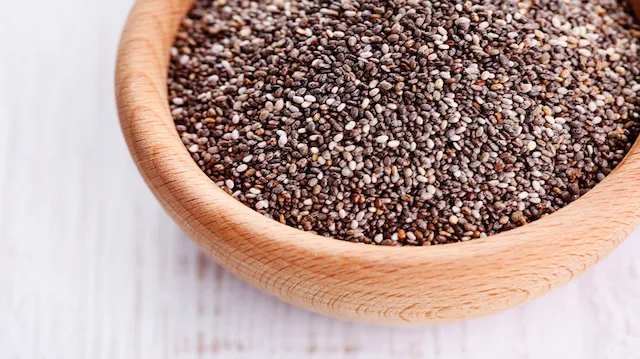Did you know that most of the calories consumed by humans and our livestock come from seeds? It would be impossible to support our large human population on Earth without them! Seeds are a delicious and healthy raw and living food.
Technically, the class of food referred to as “seeds” includes legumes, grains and nuts. These all contain the raw material for a living plant, packaged up into a seed. Therefore they are excellent sources of many vitamins, minerals, enzymes and trace nutrients that are valuable for human consumption.
In this article we will explore the top six seeds — ones that we consider to be seeds in a conventional sense. These include pumpkin seeds, chia seeds, flax seeds, hemp seeds, sunflower seeds and sesame seeds.
Pumpkin seeds
Also called pepitas, pumpkin seeds can be found in a few different common varieties. They may be large and a lighter green color, or smaller and darker green. Either way, these are some of the healthiest seeds to include in your diet.
Pumpkin seeds are rich in protein as well as many B vitamins, which are often lacking in our diet. They possess properties that can help prevent depression, kidney stones and parasites.
Chia seeds
These tiny seeds hold incredible amounts of protein, antioxidants, iron, calcium, vitamin C, omega-3 fatty acids, fiber and magnesium. They are said to support brain function and heart health, and protect against arthritis and liver problems.
Flax seeds
Flax seeds are best eaten ground. They contain an amazing amount of fiber, which aids healthy digestion, keeps blood sugar levels down and helps control appetite. Flax seeds are rich in alpha-linoleic acid, which is powerfully anti-inflammatory and may reduce cancer risk. They also contain compounds called lignans, which can help balance hormones.
Hemp seeds
Hemp seeds are tasty whole, but can also be consumed as a cold-pressed oil with great health benefits. They contain nine essential amino acids and fatty acids which must be obtained from food (they cannot be produced by the body). Hemp seeds have the ideal ratio of omega-3 to omega-6 fats, which is helpful for cardiovascular health and keeping inflammation in check.
Sunflower seeds
These little seeds are one of the best food sources of vitamin E, which is a strong antioxidant. Vitamin E helps protect cell membranes and brain cells from damage. They are also a good source of magnesium, which helps support good sleep, muscle health, digestion and balanced blood pressure.
Sesame seeds
Sesame seeds are delicious as is, but their oil also makes a delicious condiment or cooking ingredient. Nutritionally, they provide many trace nutrients and minerals, including calcium, magnesium, iron, phosphorus and zinc. They also contain compounds that can lower unhealthy cholesterol and blood pressure by fixing oxidative damage.
How to eat seeds for the most nutrition
Seeds should always be eaten raw with their beneficial compounds left intact. Look for unroasted varieties in your supermarket. However, you shouldn’t just eat them straight from the package.
The best way to ensure the nutrients from the seeds can be absorbed and digested effectively is to soak the seeds first. This is because the seed holds a number of protective mechanisms to keep it from being digested (since it still wants to be able to grow, even after being eaten!).

To unlock a seed’s nutrition, soak them in water, with a little acid like lemon juice or vinegar added, for several hours or overnight. Afterwards the seeds may be laid out to dry in the sun, or in a low-temperature oven.
This soaking imitates the “spring thaw” and makes the seed think it is ready to grow, therefore it allows the protective anti-nutrients to be neutralized.
Check out your local supermarket, bulk-food store or health-food store to stock up on these healthy seeds. If you can’t find them locally, online retailers will offer plenty of selection.
Dial up the nutrition of your smoothies, snack mixes, salads and baked goods with these amazing seeds! Find some smoothie inspiration here.
—The Alternative Daily
Sources:
https://www.navs-online.org/nutrition/healthfulfoods/nutsandseeds.php
http://www.whfoods.com/genpage.php/genpage.php?tname=foodspice&dbid=82
http://www.healwithfood.org/nutrition-facts/chia-seeds-value.php
http://link.springer.com/article/10.1007/BF02542169
http://www.sciencedirect.com/science/article/pii/S0308814607008709
http://journals.cambridge.org/action/displayAbstract?fromPage=online&aid=872540&fileId=S0007114593000479
